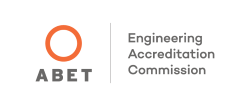ABET-accredited
Only school in Pennsylvania's State System with 6 ABET accredited programs
What to Expect
Courses include software design, testing, technical communication, and project management.
Hands-on Experience
Training in version control, risk assessment, and modular design.

Shippensburg’s Software Engineering program prepares students to develop and maintain large-scale software systems, combining computer science knowledge with a focus on software development. Unlike traditional computer science programs, it focuses on systematic processes such as designing, testing, and maintaining scalable software.
Students learn how to modularize complex systems, track project milestones, evaluate risk, and deliver functioning software.
Course work for Software Engineering, B.S.
The program requires credits that include the university's general education curriculum. For full course descriptions, please visit the undergraduate catalog.
Accreditation Information
The Software Engineering degree program and its concentrations are accredited by the Engineering Accreditation Commission of ABET, https://www.abet.org, placing Shippensburg University among the approximately 46 accredited software engineering programs in America and only three such programs in Pennsylvania. For more information on ABET, visit ABET Information.
ABET accreditation means that the national accrediting organization has spent time on our campus making sure that our curriculum meets national standards, our faculty are well-supported and current in the discipline, and our infrastructure is up-to-date and well-supported. It is your assurance that, not only is our program strong today, but we have also laid the foundation so that it will continue to be strong in the future.

